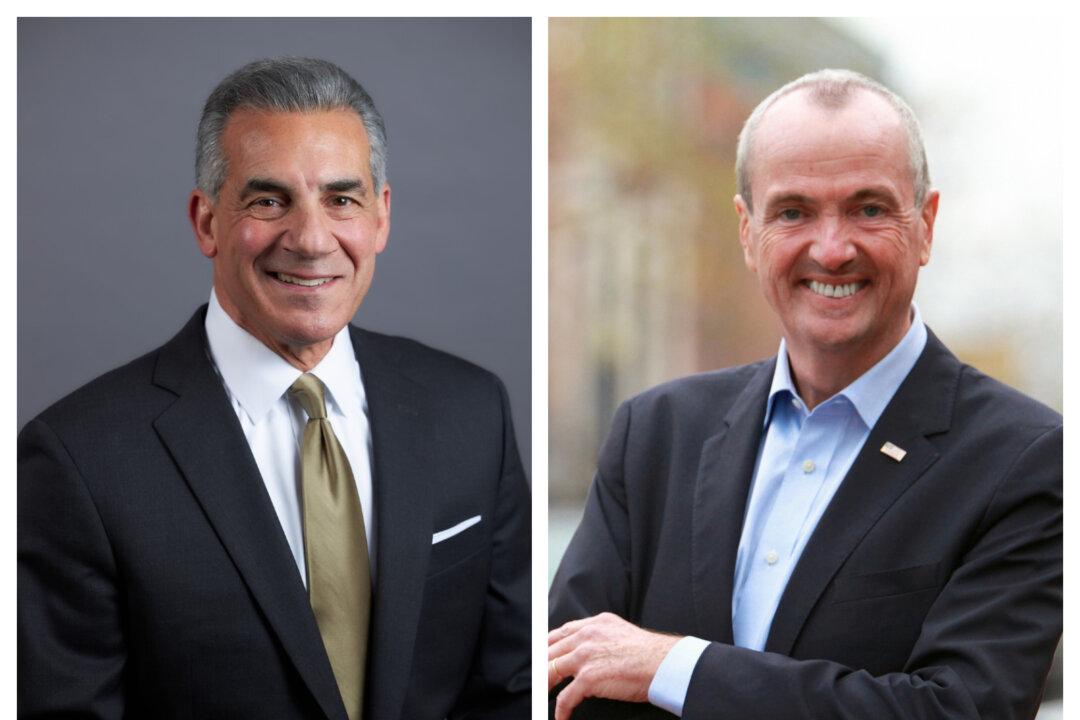New Jersey Gov. Phil Murphy and Republican hopeful Jack Ciattarelli faced off in a contentious gubernatorial debate on a range of issues, including the response to Hurricane Ida, the COVID-19 pandemic, racial profiling, school curricula, and taxes.
Ciattarelli, a former New Jersey Assemblyman, wrote on Twitter that he was “fired up after the debate.” Ciattarelli is a certified public accountant, two-time small businessman, and a lifelong resident of New Jersey.





